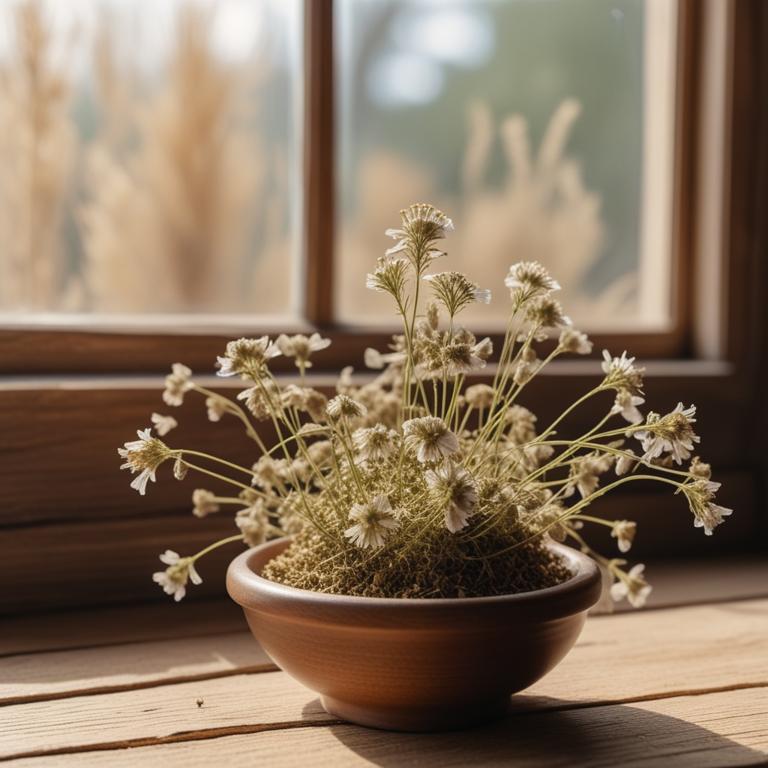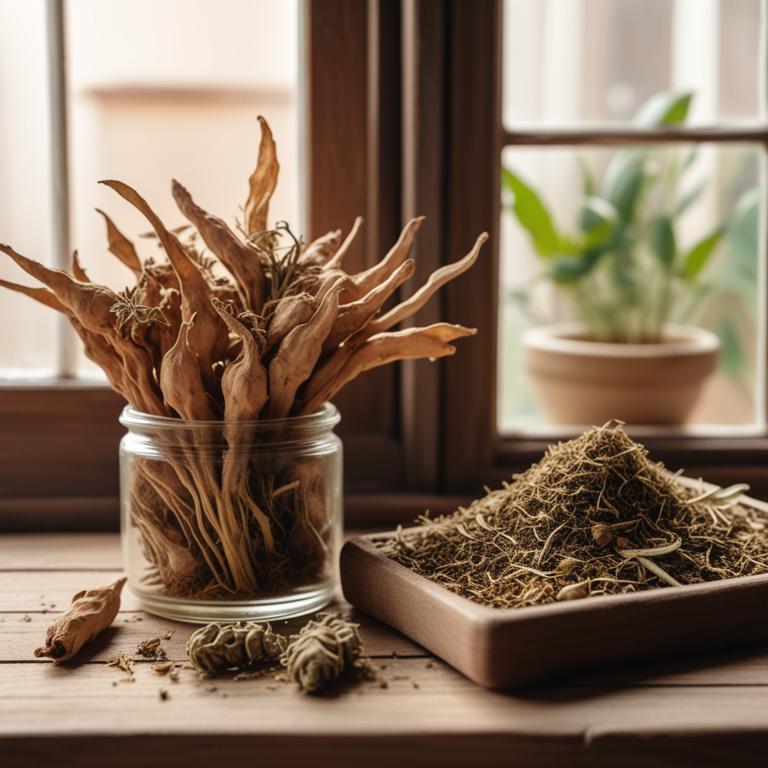Updated: Dec 1, 2024
The Flu: A Guide to Causes, Medicinal Herbs, and Herbal Preparations
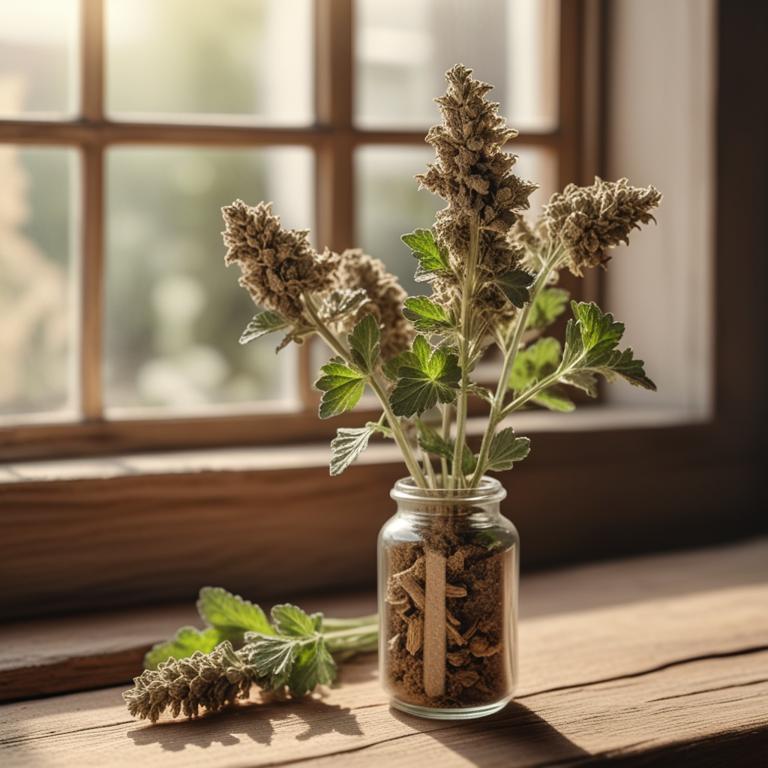
The flu, or influenza, is a contagious and sometimes serious illness that affects your life in many ways.
It can make you feel weak, tired, and unwell, making it hard to do even simple tasks. The flu is caused by the influenza virus, which spreads through the air when an infected person coughs or sneezes. Herbal remedies have been used for centuries to help alleviate the symptoms of the flu. Some of the most effective herbs include Echinacea, which helps boost your immune system, and Ginger, which eases nausea and reduces fever.
Yarrow and Sage are also used to relieve congestion and coughs. You can use these herbs in various ways to help combat the flu. One of the easiest ways is to make a tea by steeping the herbs in hot water. For example, you can combine Echinacea and Ginger to make a soothing tea that will help ease your symptoms.
You can also use them in a warm bath or as a tincture to help your body recover faster.
Table of Contents
What triggers the flu?
The main causes of flu are different strains of viruses.
One of the main causes is Influenza A, which spreads rapidly and can cause serious illness, especially in people with weakened immune systems. This strain of the flu can lead to outbreaks and pandemics. Another cause is Influenza B, which is less severe but can still cause significant illness, especially in children and older adults.
Influenza C is a milder strain of the flu that usually only causes mild symptoms, but it can still spread quickly. Respiratory Syncytial Virus (RSV) is another common cause of flu, especially in young children and older adults. RSV can cause bronchiolitis and pneumonia, which can be serious in some cases.
Adenovirus is also a cause of flu, and it can lead to mild to severe symptoms, including fever, cough, and runny nose.
What benefits can be obtained from using herbs for the flu?
Using herbs to help with the flu can be a great option for several reasons.
For one, they can help boost your immune system, making it easier for your body to fight off the infection. Some herbs have anti-inflammatory properties, which can reduce the severity of flu symptoms like fever, headache, and body aches.
They can also help ease congestion and coughing, making it easier to breathe and sleep. Additionally, certain herbs have antiviral properties, which can help stop the flu virus from spreading and replicating in your body. Using herbs can also be a more natural and gentle way to treat the flu, compared to over-the-counter medications that can have harsh side effects.
Many herbs are also rich in antioxidants, which can help protect your body from further damage and support your overall health.
What are the key medicinal herbs for combating the flu?

Herbs can be a great way to help fight the flu.
Let's start with Echinacea purpurea, a plant that's often used to boost the immune system. It contains compounds that can help reduce inflammation and fight off infections. This can make it easier for your body to recover from the flu. Zingiber officinale, or ginger, is another herb that's useful for soothing a sore throat and reducing nausea. The anti-inflammatory properties of ginger can help ease congestion and make it easier to breathe. This can be especially helpful when you have a fever and a cough. Eucalyptus globulus is a popular herb for relieving congestion.
The oil from this plant can help open up airways and make it easier to breathe. This can be especially helpful when you have a cold or the flu and need to relieve a stuffy nose. Thymus vulgaris, or thyme, is a herb that's often used to fight off infections. The active compounds in thyme can help reduce the severity of flu symptoms and make it easier for your body to recover. This can be especially helpful when you have a fever and are feeling unwell. Lastly, Sambucus nigra, or elderberry, is a herb that's often used to reduce the severity of flu symptoms. The active compounds in elderberry can help reduce inflammation and fight off infections.
This can make it easier for your body to recover from the flu and get back to normal.
What herbal preparations are most often used to combat the flu?
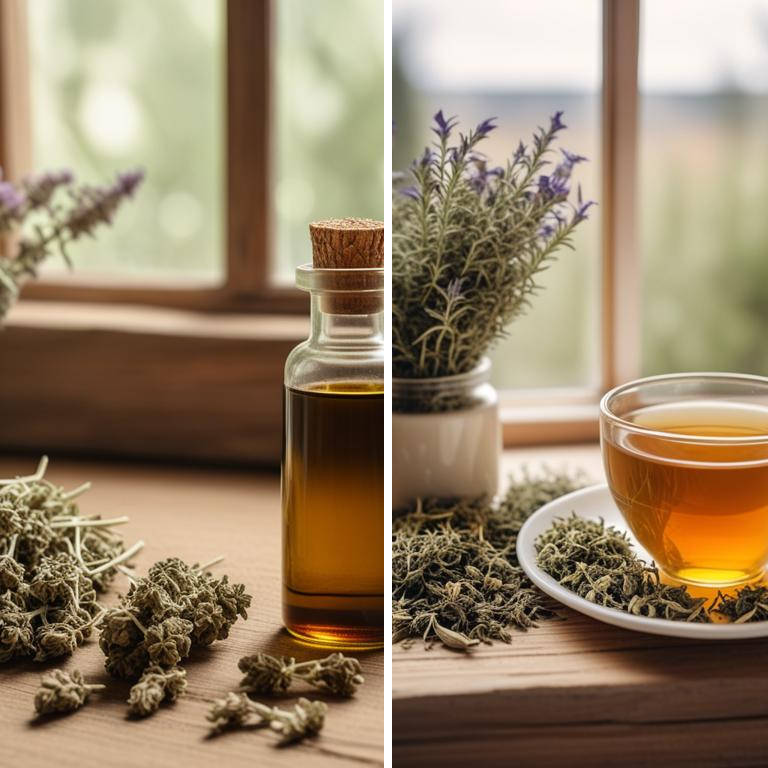
When it comes to fighting the flu, herbal preparations can be a great help.
A decoction is a strong tea made by simmering herbs in water for a long time. This method is good because it helps to release the active ingredients from the herbs, making them more effective against the flu. For example, a decoction made with ginger and licorice root can help to soothe a sore throat and calm a cough. A tincture is a concentrated liquid made by soaking herbs in a solvent like water or alcohol. This method is good because the solvent helps to extract the active ingredients from the herbs, making them more potent. For instance, a tincture made with echinacea can help to boost the immune system and fight off the flu virus. An infusion is similar to a tea, but it's made by steeping herbs in hot water for a shorter time.
This method is good because it helps to preserve the delicate active ingredients in the herbs, making them more effective against the flu. For example, an infusion made with peppermint and eucalyptus can help to ease congestion and relieve a sore throat. A capsule is a convenient way to take herbal preparations, as it's easy to swallow and digest. This method is good because it allows the active ingredients to be absorbed quickly into the bloodstream, making them more effective against the flu. For instance, a capsule made with elderberry can help to reduce fever and alleviate symptoms. And then there's tea, which is a popular way to take herbal preparations. This method is good because it's easy to make and can be enjoyed hot or cold.
For example, a tea made with chamomile and lemon balm can help to calm the mind and body, reducing stress and promoting relaxation.
Additional Resources:
What herbs should be avoided if you're suffering from the flu?
When you have the flu, it's crucial to be careful with the herbs you use to treat your symptoms.
Ginkgo biloba, for example, can make bleeding worse, which is a risk when you have the flu and may be more prone to bleeding due to a fever. Valeriana officinalis is a sedative, which can make you feel drowsy and disoriented - not what you need when you're trying to recover from the flu. Cinchona officinalis is a source of quinine, a medication used to treat malaria.
However, using it when you have the flu can lead to an imbalance in your electrolytes, which is not good for your body. Taxus baccata, or yew, contains a toxic compound called taxine that can be fatal if ingested in large amounts. That's a risk you can't afford to take when you're already feeling unwell.
Piper nigrum, or black pepper, may seem harmless, but it can irritate your digestive system and make your flu symptoms worse, especially if you're already experiencing stomach upset.
FAQ
Are there any specific herbs that can prevent flu?
Elderberry is one herb that may help prevent the flu.
Its antiviral properties can help stop the flu virus from spreading. Ginger, another herb, has anti-inflammatory properties that can soothe a sore throat and reduce congestion.
Both herbs have been used for centuries to help boost the immune system and fight off illness.
Is it safe to use herbal remedies for flu during pregnancy?
Using herbal remedies for the flu during pregnancy can be a concern.
Some herbs, like echinacea and ginger, may help with symptoms, but others, like foxglove and pennyroyal, contain compounds that can harm the unborn baby.
To be safe, it's best to choose gentle, well-studied options and follow the recommended dosage carefully.
Are there any herbs that can reduce the frequency of flu?
Elderberry is a herb that may help reduce the frequency of flu.
It has antiviral properties that can help fight off the virus. Some studies suggest that elderberry can shorten the duration of flu symptoms and reduce their severity.
Taking elderberry supplements or drinking elderberry tea may be beneficial, but more research is needed to confirm its effectiveness.
Can i combine different herbal remedies for flu?
You can combine different herbal remedies for flu, but be careful.
Some herbs interact with each other, so start with small doses and observe how your body reacts. For example, combining ginger and eucalyptus might ease congestion, while adding peppermint could help soothe a sore throat.
Just remember to respect the potency of each herb.
Related Articles

Allergies: Exploring Causes and Natural Remedies with Medicinal Herbs
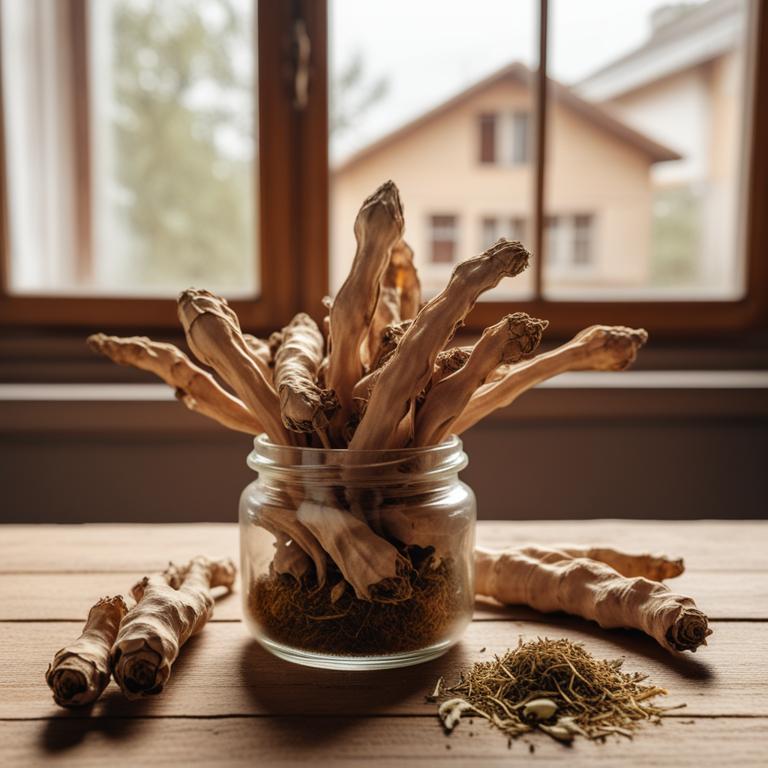
Inflammation: Understanding the Causes and the Therapeutic Use of Medicinal Herbs and Herbal Preparations
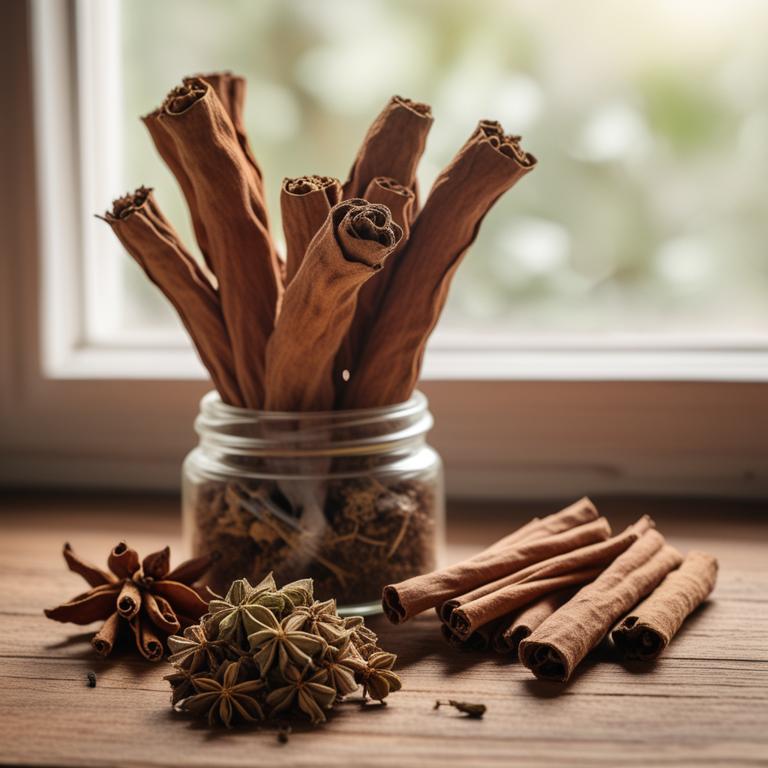
Enlarged Spleen and Herbal Medicine: Understanding the Connections

Feverish Feeling: Causes, Symptoms, and Herbal Solutions

The Flu: A Guide to Causes, Medicinal Herbs, and Herbal Preparations
